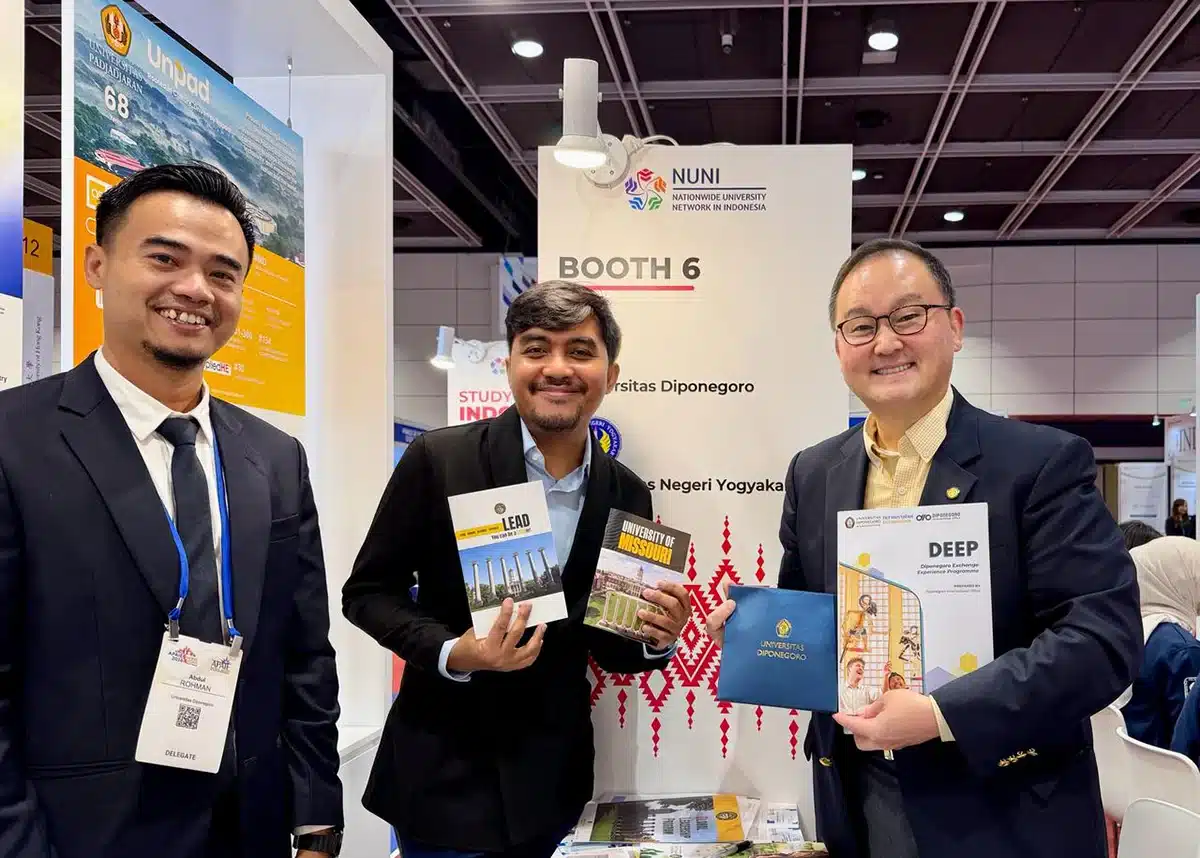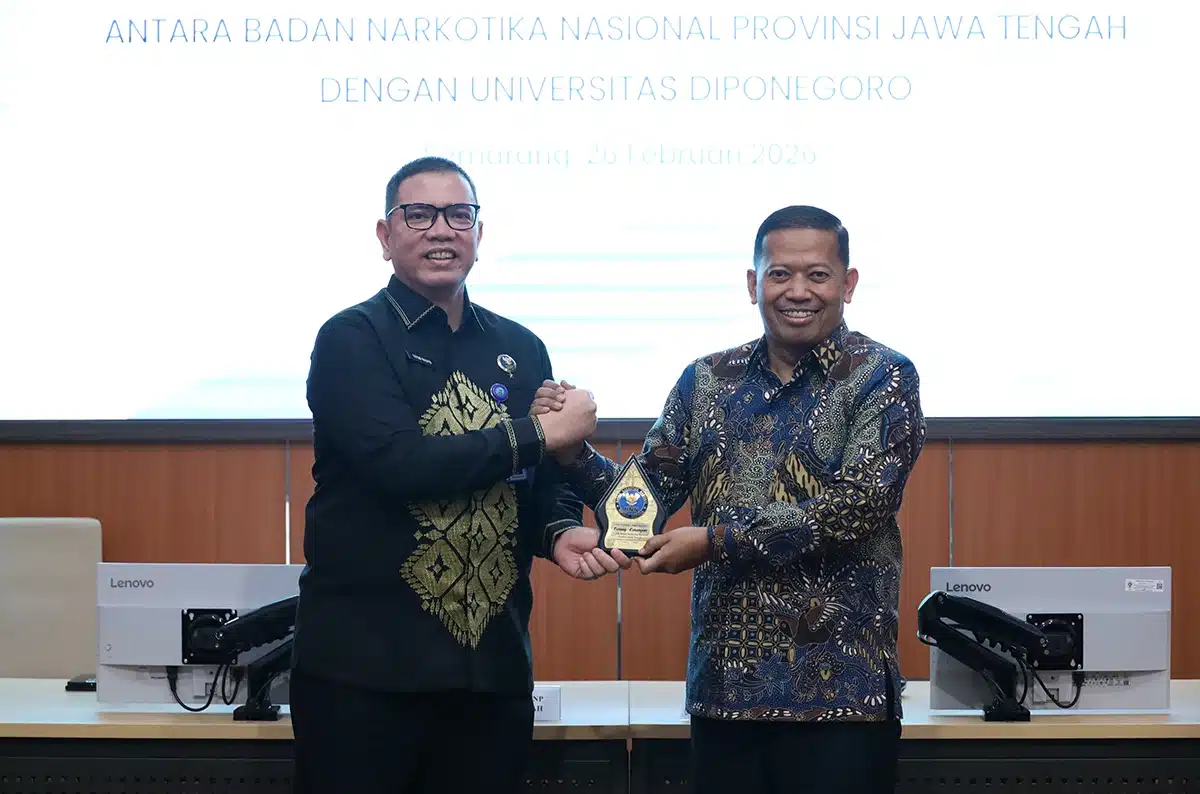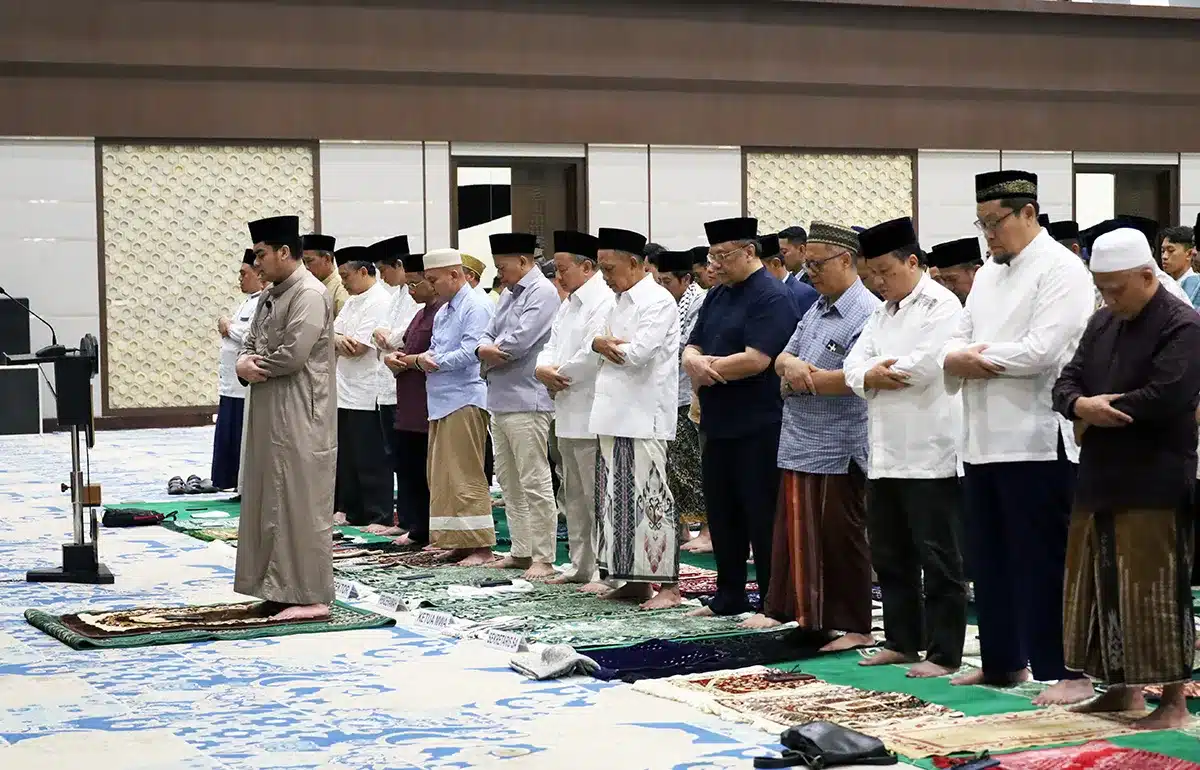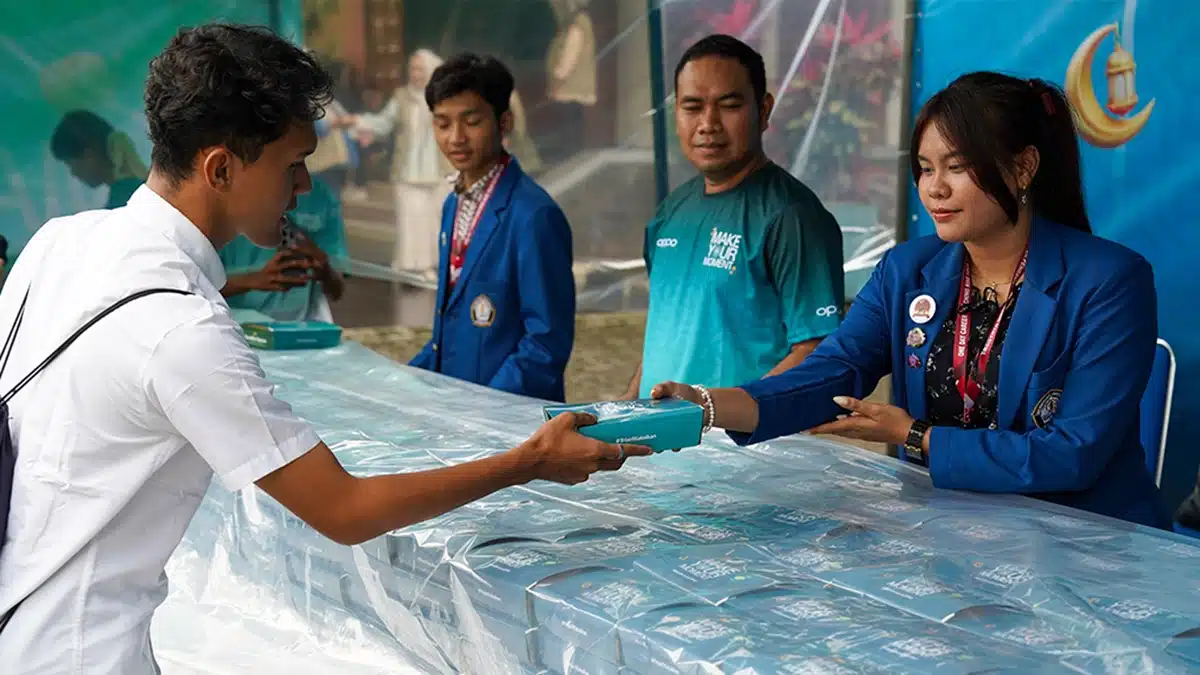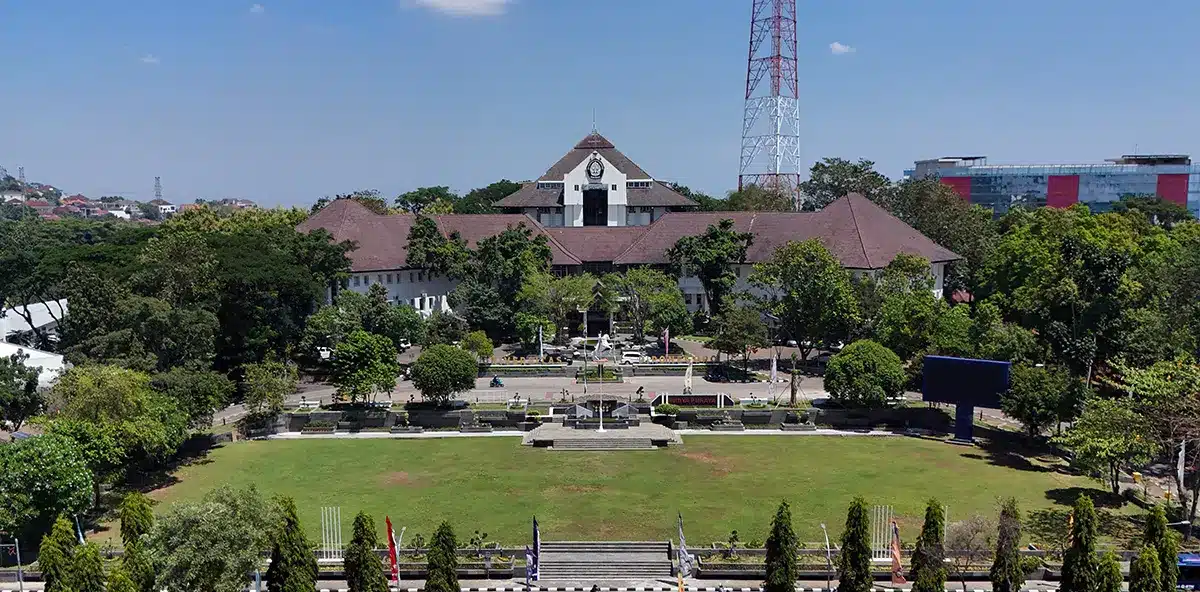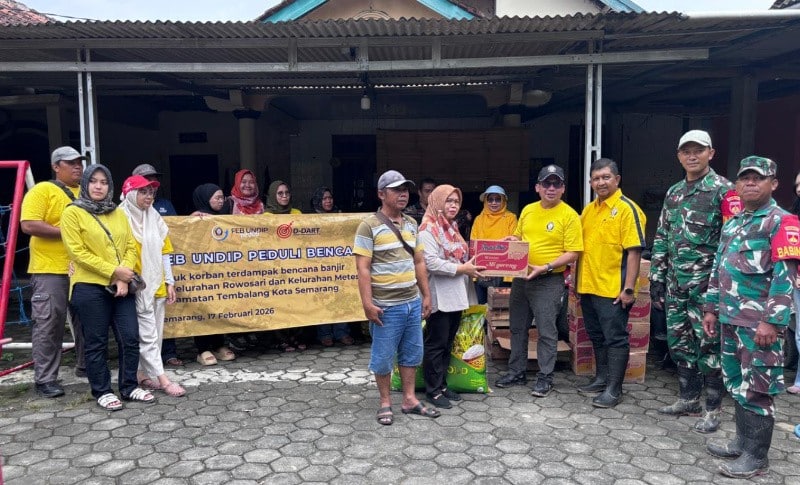SEMARANG – Diponegoro University (Undip) Rector, Prof. Dr. Yos Johan Utama SH MHum emphasized that eradication of the spread of radicalism in higher education cannot be solved with soft treatment, but must be treated with firm and strong. The reason is, not only students who have been exposed to the previous environment, but there are also roles from internal campus elements.
This was announced by Prof. Yos during the Focus Group Discussion (FGD) of the Undip Academic Senate Council of Professors with the theme ‘Anti-Radicalism Cultural Education for Undip Students’ which was held virtually, Tuesday (4/8/2020).
Other spokesperson during the FGD were the Head of the National Police Baintelkam, Komjen Pol Dr. Rycko Amelza Dahniel MSi, who was represented by Brig. Drs Boy Rafly Amar MH.
“During my 4 years as rector, I detected this. Radicalism inside the campus are able to camouflage, enter the senates, enter the student communities. Their social media skills are so good, their militancy is strong. Thus, at the time of raising the petition, they had a lot of community. But they often avoid dealing directly in physical form,” said Prof. Yos when describing Undip’s policies in combating the radicalism inside campus.
The Rector said, starting with a statement from the National Counterterrorism Agency (BNPT) which stated that there were 10 higher education institution (PT) that were exposed to radicalism, including Undip, he then carried out a deepening. If we say that they are being exposed to radicalism, it means that there are around 250,000 Undip alumni who have been affected. “If the campus has been labeled as radical, we will be the ones who received the impact, it will be difficult for our graduates to find job opportunities. For that reason, the handling of radicalism inside campus must be firm,” he said.
He admitted that the student actions in the movement for the spread of radicalism were very massive and structured. Not only just inside the campus environment, but they also carry out activities outside by forming cells.
“And we apologize for this, but there are supports from other parties within us. Their thinking patterns differ from ours, and judge our way of thinking as incorrect. This is a dangerous thing, when later they met counselors who in quotes also supports this thinking, “said the expert on constitutional law.
The head of the BNPT (National Counterterrorism Agency), Dr Drs Boy Rafli Amar MH, welcomed Undip’s courage to raise the issue of terrorism for the Webinar. The selection of this issue, said Komjen Boy, was part of the role of academics to jointly save the Republic of Indonesia from various ideologies that were against Pancasila.
Radicalism itself has two forms, namely terror radicalism whose actions are classified as criminal acts of terrorism, and intolerant radicalism which has not yet entered the realm of the criminal law of terrorism. One of the efforts to prevent and deter the government, he said, was the implementation of a bela negara program on campus.
National regulations on the prevention of violent-based extremism were currently being prepared and will be expected to complete in the near future. BNPT will invite the Indonesian Rector Forum to discuss this program. He also hopes that there will born a concept from campus that can moderate intolerant radical thoughts and terror radicals.
Meanwhile, the Director of State Security Baintelkam Polri, Brigadier General Pol Dr Umar Effendi, hoped for the birth of the national vision curriculum and diversity curriculum on campuses. It also becomes interesting if it can be done by inserting the attributes of nationalism, red-white nuances and the national tagline as a prefix.
Another interesting thing that the campus does in counteracting terrorism is to tighten the screening of the election of university officials. “A Red-white is a must. Strictly punish those who violate them. We are ready to help if there is a problem,” he said.
Closing the study on anti-radicalism education, Secretary of the Board of Undip Professors Prof. Dr. Drs. Iriyanto Widisuseno, M.Hum presented solutions to prevent radicalism among students with intracurricular and extracurricular programs. Its essence strengthens national vision, national defense, Pancasila ideology and religious moderation. “The direction is to form the mental attitude of students to have a sense of love for the homeland and the spirit of nationalism for the sake of the establishment of the NKRI”, he concluded.


